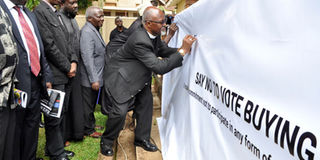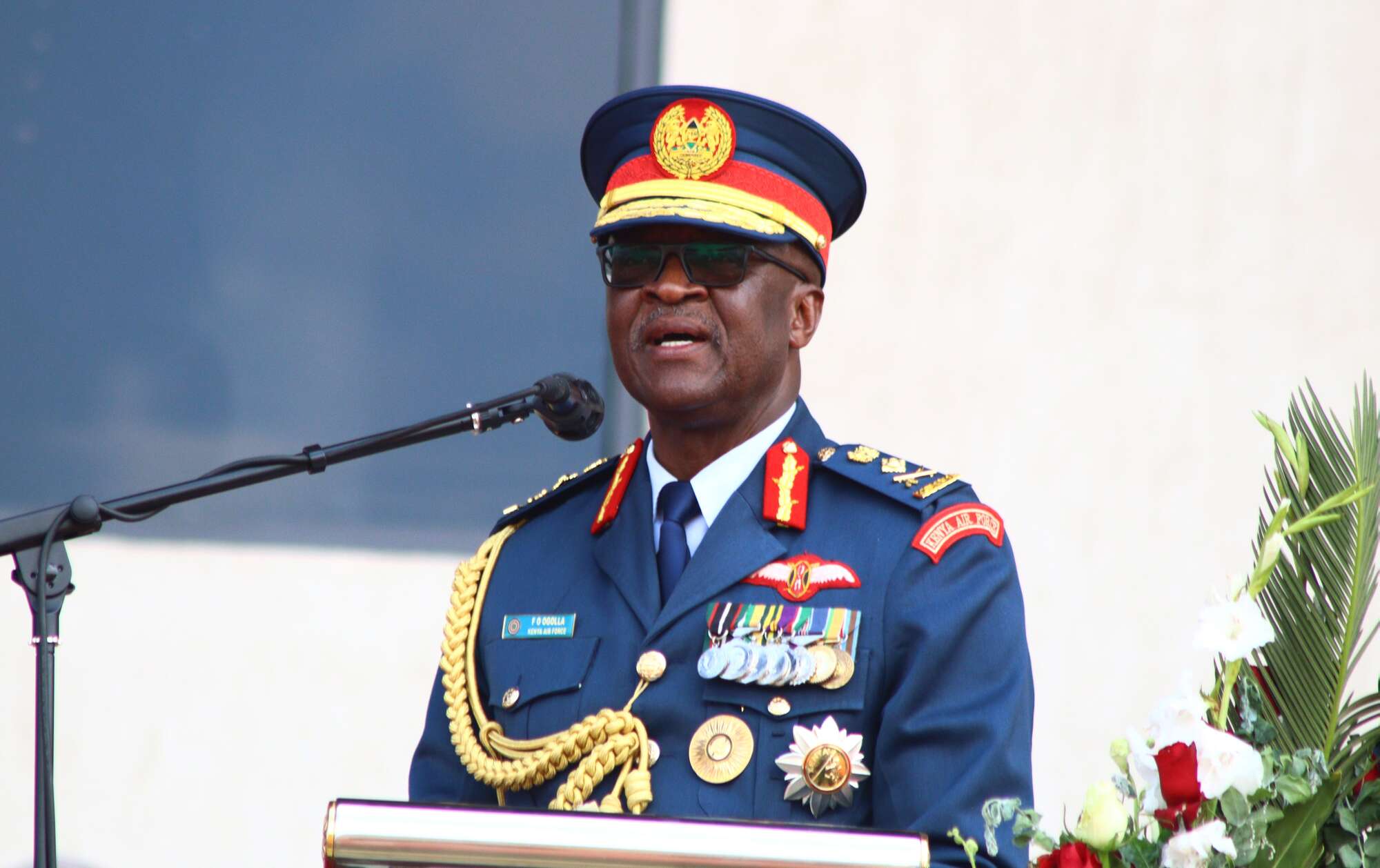Leaders launch campaign against electoral fraud

Bishop Zac Niringiye signs on a banner during the launch of the campaign against electoral fraud in Kampala on Monday. The event was also attended by (L-R) the Chief Executive Officer of Human Rights Network Uganda, Mr Mohammed Ndifuna, Sheikh Muhammed Katuramu and Fr Masembe. PHOTO BY RACHEL MABALA
What you need to know:
Campaign. Civil society and religious leaders caution candidates against buying votes
KAMPALA.
Civil society, political and religious leaders have launched a joint campaign against electoral fraud.
In the campaign, the leaders are calling upon citizens to reject all forms of electoral theft and manipulation. They are urging incumbent leaders and aspiring ones against buying votes come 2016.
“As the country prepares for the 2016 general election, with both promise and anxiety, we need to pay attention to the different manifestations of electoral corruption, with a bias towards vote buying, vote selling, bribery and fake procurements,” said Mr Richard Ssewakiryanga, the executive director of the Uganda National NGO Forum, during the launch of the campaign at the Human Rights Network Uganda (HURINET-U) offices in Kampala.
He said the idea was conceived as part of the Black Monday Movement and will in the coming months be spread out across the country.
“We are also calling on all citizens to commit to not sell their votes,” he added.
Mbale Municipality MP Jack Wamayi Wamanga said the vice of vote buying and selling affects the quality of legislation in Parliament given that would be quality MPs are knocked out of the race because they cannot afford to pay.
“You see some parliamentarians and wonder how they came to Parliament. We do not want Ugandans to sell their votes. Politicians are selling their houses and plots just to get to Parliament. As someone who came to Parliament first through a by-election, I understand the gravity of money in an election,” Mr Wamanga said.
A recent survey, ‘Who Pays the Piper’ by Alliance for Campaign Finance Monitoring, revealed that 62 per cent of MPs want the amount of money to be spent contesting for a parliamentary seat capped while 73 per cent of those interviewed in the survey wanted the amount spent on election campaigns by presidential candidates restricted.
Seventy-four per cent of the MPs in that survey wanted the amount of money spent on election campaigns by political parties limited.
Imam Idi Kasozi from the Uganda Muslim Youth Assembly, called upon Ugandans to develop what he called the “4Cs” including character, courage, confidence and charisma.
“No amount of money can buy my character, that is why I disagree with those who say take the money but vote for me. An example of a man who has charisma is Nasser Sebaggala though he is a bad example, if we picked his charisma and used it for positive reasons, we would be in a better position,” Imam Kasozi said.
Retired Assistant Bishop of Kampala Zac Niringiye urged Ugandans to view electoral fraud as an evil.
“Stealing of elections is an evil, Luweero (Bush War) happened because of that evil. This evil is sadly in State House, Churches, mosques, Parliament, NGOs and our school system. We need to ask questions within ourselves,” Bishop Niringiye said.
FOWODE Executive Director Patricia Munabi Babiiha observed that women face a challenge of getting enough money to last them beyond the nomination, adding that the campaign will help them to compete fairly. “We know that women do not have as much resources as the men when it comes to elections. We hope this campaign is going to help women politicians intending to stand,” Ms Babiiha said.
ACTIVITIES
• Inter denominational prayers led by religious leaders from all faiths.
• A sign-up chart for ordinary citizens to expose electoral bribery and reject corrupt leaders as well as commit not to sell votes.
• A sign-up book for leaders committing not to buy votes come 2016, including naming and shaming those that will sign-up or refuse to sign-up
• A Black Monday Easter Card that will go out to all public officials.




